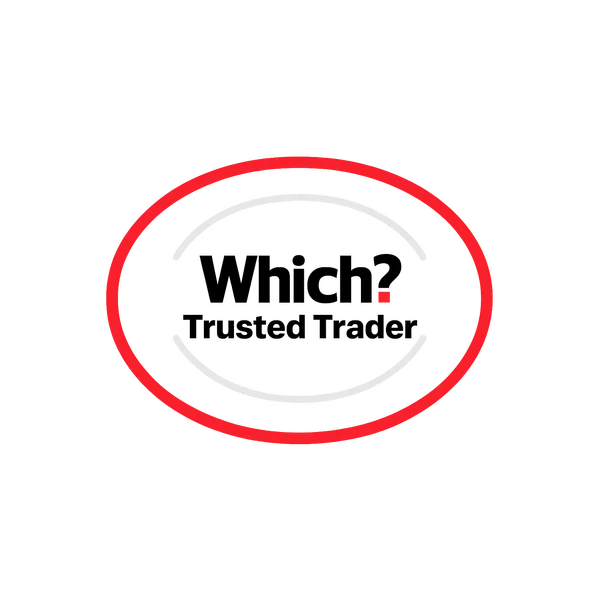How to Get the Most Out of Your Economy 7 Tariff with Storage Heaters
Economy 7 tariffs represent one of the most cost-effective ways to heat your home, offering significantly cheaper electricity during seven overnight hours. However, many homeowners fail to maximise their potential savings, leaving money on the table through inefficient usage patterns. This comprehensive guide will transform your approach to Economy 7 heating, providing actionable strategies to optimise your storage heaters and reduce your energy bills.
Understanding Your Economy 7 Tariff
Before diving into optimisation techniques, it's crucial to understand how Economy 7 works. This tariff provides seven hours of cheaper electricity overnight (typically between midnight and 7am, though exact times vary by supplier), while daytime rates remain higher than standard tariffs. The key to maximising savings lies in shifting as much energy consumption as possible to these off-peak hours.
Storage heaters are specifically designed for this purpose, absorbing cheap overnight electricity and releasing it as heat throughout the following day. Modern storage heaters feature sophisticated controls that allow precise management of heat storage and release, while older models may require more manual intervention.
Optimisation Strategy 1: Perfect Charging Schedules
Know Your Exact Off-Peak Hours
The first step to optimisation is confirming your specific Economy 7 hours with your supplier. While most follow similar patterns, variations exist. Some suppliers offer 10pm-8am windows, while others might have split periods. Contact your energy provider or check your bill to confirm your exact off-peak times.
Maximise Overnight Charging
Ensure your storage heaters are set to charge fully during your off-peak period. Most modern heaters have automatic timers, but verify they're correctly programmed. For manual heaters, establish a routine to switch them to charge mode before your off-peak period begins.
Pro Tip: Consider using smart plugs with scheduling capabilities for older storage heaters, allowing automated charging during off-peak hours without manual intervention.
Optimisation Strategy 2: Room-by-Room Control
Tailor Heating to Room Usage
Not all rooms require the same level of heating. Implement a strategic approach:
- Living Areas: Set higher output levels for rooms used during daytime hours
- Bedrooms: Moderate settings that provide comfort without excessive heating
- Spare Rooms/Hallways: Minimum settings or consider turning heaters off entirely
- Bathrooms: Higher morning output for comfort during peak usage times
Zone-Based Temperature Management
Create heating zones based on your household's routine. Living areas might need maximum heat release during evenings, while bedrooms benefit from gradual warmth throughout the night. Adjust output controls accordingly, increasing settings in frequently used rooms and reducing them in less-used spaces.
Optimisation Strategy 3: Weather Compensation Techniques
Anticipate Temperature Changes
Storage heating requires forward planning. Monitor weather forecasts and adjust your heater settings accordingly:
- Cold Spells: Increase charging levels 24-48 hours before expected temperature drops
- Mild Periods: Reduce charging to avoid overheating and wasting stored energy
- Seasonal Transitions: Gradually adjust settings as seasons change rather than making sudden adjustments
Utilise Built-in Thermostats
Modern storage heaters feature room thermostats that automatically adjust heat output based on ambient temperature. Ensure these are correctly calibrated and positioned away from heat sources or draughts for accurate readings.
Optimisation Strategy 4: Thermal Mass Utilisation
Understand Heat Retention Principles
Storage heaters work by heating ceramic or clay bricks (thermal mass) overnight, which then slowly release heat throughout the day. Maximise this process by:
- Avoiding Rapid Discharge: Don't set output controls too high, which causes rapid heat loss
- Gradual Release: Lower output settings provide longer-lasting, more consistent warmth
- Insulation Support: Ensure your home is well-insulated to retain the released heat effectively
Strategic Heater Placement
Position heaters where their released heat can circulate effectively. Avoid placing furniture directly in front of heaters and ensure adequate space for air movement. Consider the room's layout and typical air flow patterns when deciding heater placement.
Optimisation Strategy 5: Avoiding Daytime Usage
Shift Energy-Intensive Activities
The golden rule of Economy 7 is minimising daytime electricity consumption. Implement these practices:
- Laundry: Schedule washing machines and tumble dryers to run overnight
- Dishwashing: Use delay start functions to operate during off-peak hours
- Water Heating: If you have an immersion heater, ensure it's timed for overnight operation
- Cooking: Consider batch cooking during off-peak hours where practical
Smart Appliance Management
Invest in smart plugs and timers for appliances that don't have built-in scheduling capabilities. Many modern smart home systems can automate this process, ensuring maximum usage of cheap-rate electricity.
CRG Direct's Smart Configuration Services
Professional Storage Heater Optimisation
At CRG Direct, we specialise in maximising Economy 7 efficiency through our comprehensive smart configuration services:
Initial Assessment & Setup
- Detailed analysis of your current heating system
- Customised charging and output schedules based on your household routine
- Room-by-room optimisation recommendations
- Weather compensation programming
Ongoing Monitoring & Adjustment
- Seasonal performance reviews
- Usage pattern analysis and adjustment recommendations
- Efficiency reporting and savings tracking
- Remote configuration updates for smart heating systems
Advanced Smart Heating Solutions
- Integration with home automation systems
- Remote control and monitoring capabilities
- Predictive heating based on weather forecasts
- Energy consumption analytics and reporting
The CRG Direct Advantage
Our approach goes beyond basic setup. We consider your specific lifestyle, home layout, insulation quality, and local climate to create a truly optimised heating strategy. Whether you have modern digital storage heaters or older manual models, our expertise ensures you extract maximum value from your Economy 7 tariff.
Common Mistakes to Avoid
Overcharging Heaters
Setting charging levels too high wastes energy and money. Only charge what you'll realistically need based on weather forecasts and your schedule.
Ignoring Seasonal Adjustments
Heating requirements change significantly between seasons. Regularly review and adjust your settings rather than maintaining the same configuration year-round.
Poor Insulation
Even the most optimised storage heating system will underperform in a poorly insulated home. Address draughts, improve loft insulation, and consider double glazing to maximise heat retention.
Incorrect Output Settings
Setting output too high causes rapid heat discharge, leaving you cold in the afternoon. Lower, consistent output provides better all-day comfort.
Measuring Your Success
Track Your Savings
Monitor your energy bills closely after implementing these strategies. Look for:
- Reduced daytime electricity consumption
- Increased proportion of energy used during off-peak hours
- Lower overall energy costs
- More consistent home temperatures
Usage Pattern Analysis
Many smart meters and energy monitoring systems provide detailed usage breakdowns. Use this data to identify areas for further optimisation and verify your strategy's effectiveness.
The Future of Storage Heating
Modern storage heating technology continues to evolve, with smart controls, internet connectivity, and advanced thermal materials making systems increasingly efficient. The principles outlined in this guide will remain relevant while becoming easier to implement as technology advances.
Take Control of Your Heating Costs
Mastering your Economy 7 tariff and storage heaters requires understanding, planning, and regular adjustment, but the financial rewards are substantial. By implementing the strategies outlined above, most households can achieve significant savings while maintaining comfortable home temperatures.
Remember that every home and household is different. What works for one family may need adjustment for another. The key is continuous monitoring and refinement of your approach.
Ready to Optimise Your Economy 7 System?
If you're struggling to maximise your Economy 7 savings or want professional assistance implementing these strategies, CRG Direct's expert team is here to help. Our smart configuration services have helped countless households across the UK achieve optimal heating efficiency and substantial cost savings.
Contact us today for a free consultation and discover how we can transform your Economy 7 experience. Let us handle the technical details while you enjoy the comfort and savings of a perfectly optimised heating system.















